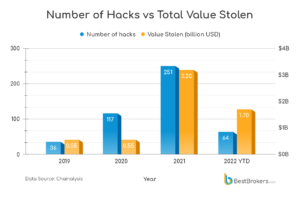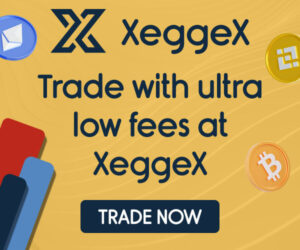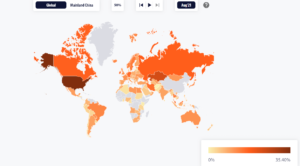With the boon of Proof-of-Stake networks across the crypto industry, staked crypto assets have emerged as an increasingly attractive financial instrument for individual and corporate investors. Data from DefiLlama shows that the value of assets locked in liquid staking services jumped 292% to $20 billion as of September 2023. This growth has not gone unnoticed among institutions looking to explore the crypto space — with 74% of firms committed to exploring digital assets and over 63% reporting a positive outlook on the wider crypto space.
However, the lack of compliance and due diligence remains a key stumbling block for potential investors. Recent findings from UK-based crypto firms found that just one in five (17%) consistently verify new customers, with half admitting to conducting these checks sporadically.
As such, with the growing adoption of digital assets and staking services, it’s more critical for investors to assess counterparty risk to protect their portfolios thoroughly. For EU-based or offshore institutional investors from any other jurisdiction, asking the right questions to their staking provider is essential. As such, here are five critical questions that will help establish the veracity of your staking provider.
Does your staking provider expose you to US legal and/or the SEC’s jurisdiction?
One of the key aspects to consider when choosing a staking provider is the legal jurisdiction they operate in. Specifically, users should inquire as to whether the staking provider exposes them to US legal jurisdiction and/or the jurisdiction of regulatory bodies such as the Securities and Exchange Commission (SEC). This is important to note as staking providers that operate under US legal jurisdiction may present a counterparty risk for investors.
In contrast, the EU has a clear regulatory framework for crypto assets, offering investor protection and setting requirements for Crypto Asset Service Providers (CASPs). Some countries also have capital controls or prohibitions on crypto businesses that could affect international investors’ ability to use certain staking services.
Local laws also influence the onboarding processes and anti-money laundering regulations, impacting access and compliance risks for investors. Finally, jurisdictions also impact the legal ownership of staked crypto assets and what would happen in scenarios like bankruptcy or government seizures. As seen with the aforementioned factors, better jurisdictional laws influence a myriad of factors, such as asset security, market liquidity, and taxation requirements for investors.
In the meantime, as regulations continue to be hashed out, investors need to be aware of the potential consequences of operating in unclear jurisdictions such as the US and depending on their course of action, they can choose to avoid such countries completely or proceed to operate under the unrefined legislation in place to ensure they don’t draw the ire of local regulators. Investors might also benefit from following the lead of other players operating in said jurisdictions, who have acquired greater industry nous on ensuring compliance in the face of uncertainty.
Does your staking provider have audited financials and have regular third-party audits or assurances for their operational conduct?
Transparency and compliance are also vital factors when selecting a staking provider. To gain confidence in their operations, it is important to ascertain whether the staking provider has audited financials and undergoes regular third-party audits or assurances for their operational conduct. Staking providers incorporated in the EU or the US typically follow accounting standards such as US Generally Accepted Accounting Principles (GAAP) or International Financial Reporting Standards (IFRS), which require audited financial statements.
Additionally, staking providers may provide further documentation for their Anti-Money Laundering (AML) and compliance systems by registering as Crypto Asset Service Providers under the Markets in Crypto Assets (MiCA) regulation. This registration ensures they have internal control mechanisms, policies, and procedures to identify, assess, and manage risks, including money laundering and terrorist financing risks, as well as a business continuity plan.
How does your staking provider assure that funds — inadvertently or otherwise — have not contributed to the generation of staking rewards that may have benefited sanctioned entities?
Investors should also be cautious about any exposure to sanctioned entities or jurisdictions. Investors require clarity from staking providers regarding the potential usage of funds to inadvertently contribute to generating rewards that may benefit sanctioned entities.
Direct exposure to sanctioned entities may result in legal obligations for investors to report such exposure to relevant authorities, such as the Office of Foreign Assets Control (OFAC) or Financial Crimes Enforcement Network (FinCEN) in the US, European Banking Authority (EBA) in the EU, or the Office of Financial Sanctions Implementation (OFSI) in the UK. Therefore, it is essential to ensure that one’s staking provider has strategies and processes to meet these obligations and mitigate potential risks.
How does your staking provider assure no commingling of funds and segregation of funds?
Another important aspect to consider is how the separation and segregation of funds is executed. Institutional investors often require custodians who can ensure funds are segregated and held in compliance with regulatory requirements, such as with the Markets in Crypto Assets (MiCA) regulation in the EU. However, in some cases, when initiating staking, funds need to leave the custodian and be committed on-chain through a transaction.
This process may lead to the commingling of funds where smart contracts or protocols are used, which must be carefully monitored and assessed by the staking provider or custodian. Understanding how the staking provider ensures the separation and segregation of funds is vital to minimize risks associated with commingling to ensure compliance with regulatory standards.
What counterparties does your staking provider expose you to?
The counterparties involved in staking can vary depending on the provider. Getting a detailed overview of counterparty risk exposure, such as with smart contracts or decentralized autonomous organizations (DAOs), is essential to assess the associated risks. Decentralized staking providers, organized as DAOs or utilizing smart contracts, require a thorough risk assessment, including financial stability, operational security, code and governance review, and regulatory compliance.
On the other hand, centralized staking providers must comply with current and future crypto regulations, as well as Anti-Money Laundering/Counter-Terrorist Financing (AML/CTF) laws, and securities laws.
So, it is important to affirm if one’s staking provider conducts thorough checks on the proof of source of funds and Ultimate Beneficial Owners (UBOs) of their clients. This ensures compliance with AML requirements and helps prevent investments from benefiting from illicit funds. Rigorous AML practices, policies, and systems should be a minimum requirement for staking providers, comparable to other service providers in alternative investments.
Setting Standards
While staked crypto assets represent an attractive financial opportunity, investors must conduct thorough due diligence on staking providers and continue to make the right demands of them. With so many factors at play, asking probing questions, such as those outlined above, will help prospective investors fully understand how their funds will be handled and what protections are in place.
Staking promises a strong foundation for the continued institutional adoption of digital assets. While being lured by the prospects of high earnings and generating additional value, investors need to be well informed about the risks associated with staking practices. This burden should increasingly fall on the shoulders of staking providers, who need to ensure that potential investors are given the clarification, direction and strategies to capitalize on the industry and its growth, supercharging its adoption for years to come.
Disclaimer: The information provided in this article is for educational purposes only and should not be considered as financial or investment advice. Always conduct thorough due diligence and consult with a professional advisor before making any investment decisions.
- SEO Powered Content & PR Distribution. Get Amplified Today.
- PlatoData.Network Vertical Generative Ai. Empower Yourself. Access Here.
- PlatoAiStream. Web3 Intelligence. Knowledge Amplified. Access Here.
- PlatoESG. Carbon, CleanTech, Energy, Environment, Solar, Waste Management. Access Here.
- PlatoHealth. Biotech and Clinical Trials Intelligence. Access Here.
- Source: https://cryptoslate.com/insights-due-diligence-with-crypto-staking-providers/
- :has
- :is
- :not
- :where
- 2023
- 500
- a
- ability
- About
- above
- accepted
- access
- Accounting
- acquired
- across
- Action
- Additional
- Adoption
- advice
- advisor
- affect
- Affirm
- also
- alternative
- alternative investments
- always
- AML
- among
- an
- and
- anti-money laundering
- any
- ARE
- article
- AS
- asking
- aspect
- aspects
- assess
- assessed
- assessment
- asset
- Assets
- associated
- assure
- At
- attractive
- audited
- audits
- Authorities
- authority
- autonomous
- avoid
- aware
- Bad
- Banking
- Bankruptcy
- BE
- before
- being
- beneficial
- benefit
- benefiting
- Better
- Billion
- binance
- Block
- Bloomberg
- bodies
- burden
- business
- business continuity
- businesses
- by
- CAN
- capital
- capital controls
- capitalize
- carefully
- cases
- cautious
- centralized
- certain
- Checks
- Choose
- choosing
- Citibank
- clarity
- clients
- code
- come
- commission
- committed
- comparable
- completely
- compliance
- comply
- Conduct
- conducting
- conducts
- confidence
- Consequences
- Consider
- considered
- consistently
- continue
- continued
- continuity
- contracts
- contrast
- contribute
- contributed
- control
- controls
- Corporate
- could
- counterparties
- Counterparty
- countries
- course
- Crimes
- critical
- crypto
- crypto asset
- crypto firms
- Crypto Industry
- Crypto regulations
- crypto space
- Crypto staking
- crypto-assets
- CryptoSlate
- Current
- custodian
- custodians
- Customers
- DAOs
- decentralized
- decentralized autonomous organizations
- decisions
- demands
- Depending
- detailed
- digital
- Digital Assets
- diligence
- direction
- documentation
- does
- Dont
- draw
- due
- Earnings
- EBA
- EC
- educational
- emerged
- enforcement
- ensure
- ensures
- ensuring
- entities
- essential
- establish
- EU
- Europa
- European
- European banking
- European Banking Authority (EBA)
- exchange
- Exchange Commission
- executed
- explore
- Exploring
- Exposure
- Face
- factors
- Fall
- Finally
- financial
- financial crimes
- Financial Crimes Enforcement Network
- Financial Sanctions
- financial stability
- financials
- financing
- FinCen
- firms
- five
- Flows
- follow
- following
- For
- For Investors
- foreign
- found
- Foundation
- from
- fully
- funds
- further
- future
- GAAP
- Gain
- generally
- generating
- generation
- getting
- given
- gone
- governance
- Government
- greater
- Growing
- Growth
- Half
- hand
- happen
- hashed
- Have
- Held
- help
- helps
- here
- High
- How
- However
- http
- HTTPS
- identify
- if
- ifrs
- illicit
- Impact
- impacting
- implementation
- important
- important aspect
- in
- inadvertently
- Including
- Incorporated
- increasingly
- individual
- industry
- influence
- information
- informed
- initiating
- inquire
- insights
- Institutional
- Institutional Adoption
- institutional investors
- institutions
- instrument
- internal
- International
- investment
- Investments
- investor
- investor protection
- Investors
- involved
- IT
- ITS
- jpg
- jurisdiction
- jurisdictions
- just
- just one
- Key
- KYC
- Lack
- Laundering
- Laws
- lead
- Leave
- Legal
- Legal Jurisdiction
- Legislation
- like
- Liquid
- liquid staking
- Liquidity
- local
- locked
- looking
- make
- Making
- manage
- many
- Market
- Markets
- May..
- meantime
- mechanisms
- Meet
- MiCA
- might
- minimize
- minimum
- Mitigate
- money
- Money Laundering
- monitored
- more
- must
- myriad
- Need
- network
- New
- no
- note
- obligations
- of
- OFAC
- offering
- Office
- often
- on
- On-Chain
- Onboarding
- ONE
- only
- operate
- operating
- operational
- Operations
- Opportunity
- or
- organizations
- Organized
- Other
- otherwise
- out
- outlined
- Outlook
- overview
- owners
- ownership
- Place
- placement
- plan
- plato
- Plato Data Intelligence
- PlatoData
- Play
- players
- policies
- portfolios
- positive
- potential
- practices
- present
- prevent
- principles
- procedures
- proceed
- process
- processes
- professional
- promises
- proof
- prospective
- prospects
- protect
- protection
- protocols
- provide
- provided
- provider
- providers
- purposes
- Questions
- regarding
- registering
- Registration
- regular
- Regulation
- regulations
- Regulators
- regulatory
- Regulatory Compliance
- relevant
- remains
- report
- Reporting
- represent
- require
- requirement
- Requirements
- result
- review
- Rewards
- right
- rigorous
- Risk
- risk assessment
- risks
- Said
- Sanctioned
- Sanctions
- scenarios
- SEC
- Securities
- Securities and Exchange Commission
- Securities Laws
- security
- seen
- segregated
- selecting
- September
- service
- service providers
- Services
- setting
- should
- shoulders
- Shows
- smart
- Smart Contracts
- So
- some
- Source
- Space
- specifically
- Stability
- Staked
- Staking
- Staking Rewards
- staking services
- standards
- statements
- Stop
- strategies
- strong
- stumbling
- such
- supercharging
- Systems
- Taxation
- terrorist
- terrorist financing
- that
- The
- the information
- the UK
- their
- Them
- therefore
- These
- they
- third-party
- this
- thoroughly
- those
- Through
- to
- transaction
- typically
- Uk
- ultimate
- Uncertainty
- unclear
- under
- undergoes
- understand
- understanding
- us
- Usage
- use
- used
- users
- Utilizing
- value
- verify
- vital
- WELL
- What
- when
- whether
- which
- while
- WHO
- wider
- will
- with
- would
- years
- you
- Your
- zephyrnet













